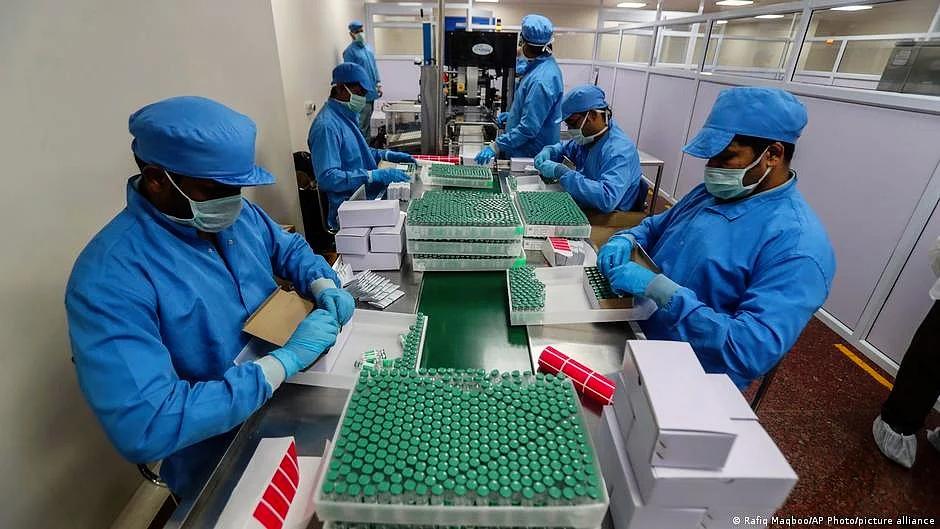Will Trump’s 100 pc tariff hurt Indian pharma or boost its generics edge?
Industry leaders believe India must use this window to strengthen its position in bulk drugs and invest in next-generation therapies

Indian pharmaceutical stocks tumbled on Friday after US President Donald Trump announced a steep 100 per cent tariff on imports of branded or patented medicines beginning 1 October, unless the manufacturing company is actively setting up a plant in the United States.
The surprise move triggered a sharp sell-off, with the Nifty Pharma index sinking 2.3 per cent to a one-month low of 21,445.50 points.
At 3.12 pm, most constituents of the sectoral index were trading deep in the red. Laurus Labs, Biocon, and Zydus Life plunged nearly 8 per cent, while heavyweight Sun Pharmaceutical Industries shed 3.4 per cent.
Large-caps such as Dr Reddy’s Laboratories and Cipla lost over 2–3 per cent, and mid-tier players Natco Pharma and Biocon were down between 3–5 per cent. Friday’s drop marked the fifth consecutive session of losses for the sector.
In a post on Truth Social, Trump declared that from October 2025, “any branded or patented pharmaceutical product” imported into the US will face a 100 per cent tariff unless the manufacturer is “building” a production facility on American soil.
“Building” will be defined as breaking ground or being under construction. Companies that have started construction will be exempt from the levy.
The move is part of the White House’s broader effort to “onshore” critical supply chains, including medicines and semiconductors. White House press secretary Karoline Leavitt defended the policy, saying, “Do we want our life-saving drugs and medicine to be made in China, or here in the United States? This is common sense.”
Trump has previously hinted that levies could climb as high as 200 per cent for companies that fail to localise manufacturing, giving them about a year to begin construction before facing penalties.
Despite the market jitters, the immediate impact on Indian pharmaceutical exporters appears limited. India exports around USD 11 billion worth of drugs to the US annually, handling nearly one-third of its total global exports of USD 30 billion. But the overwhelming majority of these are lower-cost generic formulations, not the branded or patented medicines targeted by the tariff.
“India’s main exports to the US are generic medicines, and this notification does not apply to them,” said Namit Joshi, chairman of the Pharmaceuticals Export Promotion Council of India (PHARMEXCIL). “We don’t export patented or branded drugs to the US We do not foresee much impact on the Indian generic pharmaceutical industry.”
The US depends heavily on Indian generics, which supply roughly 45 per cent of its generic drug needs and 10–15 per cent of biosimilars by volume. Experts say tariffs on generics would drive up healthcare costs and risk widespread shortages, making it politically difficult to impose duties on these products.
ICICI Securities analyst Pankaj Pandey noted that the near-term fallout is minimal but warned of potential longer-term uncertainty. “There remains a question mark over whether complex generics and biosimilars might eventually face tariff pressures,” he said.
Generic producers stand to benefit indirectly if US buyers shift focus toward lower-cost alternatives in the wake of higher prices for branded products. India’s cost competitiveness in active pharmaceutical ingredients (APIs) also gives it an edge as American companies look to diversify away from China.
Industry leaders believe India must use this window to strengthen its position in bulk drugs and invest in next-generation therapies such as complex generics, peptides, biosimilars, and CAR-T treatments.
“Generics will remain relevant but will gradually mature; optimising costs and capabilities in these emerging categories will shape the next phase of growth,” Joshi said.
For now, India’s generics industry remains a cornerstone of US healthcare, ensuring affordable and high-quality medicines for chronic conditions and life-saving treatments. But the sharp market reaction underscores a deeper truth: while the first wave of tariffs spares generics, the shifting geopolitical climate means Indian pharma cannot take its US advantage for granted.
With agency inputs
Follow us on: Facebook, Twitter, Google News, Instagram
Join our official telegram channel (@nationalherald) and stay updated with the latest headlines
